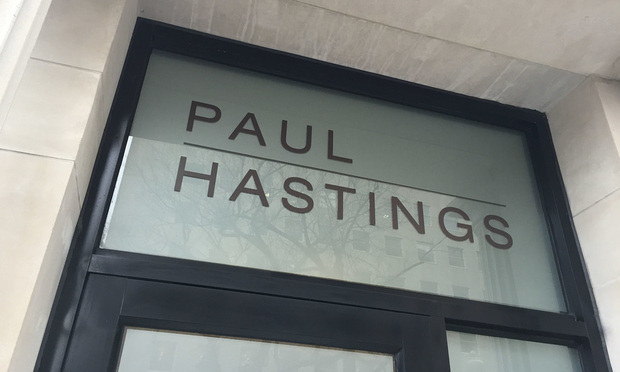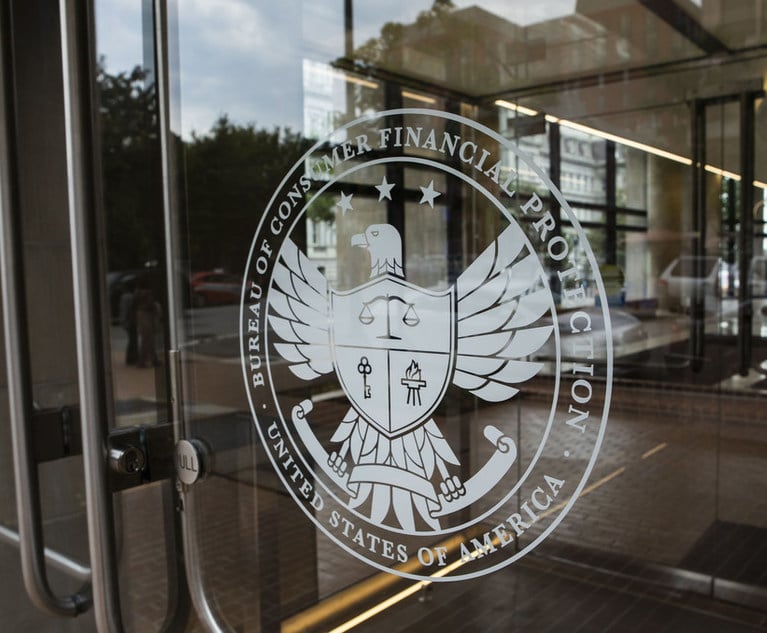Maybe Cryptocurrency Will Solve a Cannabis Industry Conundrum
California legislators this week introduced a bill that would require the state starting in 2020 to accept "stablecoins."
February 22, 2019 at 06:52 PM
4 minute read
The original version of this story was published on The Recorder
 Photo: Getty Images
Photo: Getty Images
As most banks and credit unions continue to shun California's marijuana industry, state lawmakers are looking at a new way to help cash-saddled cannabis businesses pay their taxes: cryptocurrency.
Legislators this week introduced a bill that would require the state starting in 2020 to accept stablecoins, or digital currency tied in this case to the U.S. dollar, from cannabis-related businesses seeking to pay their excise or cultivation taxes. Assembly Bill 953 would also allow, but not require, counties and cities to do the same for local fees.
The proposal is the latest attempt by the state to find an alternative to the huge sums of cash that arrive at state offices when taxes are due. California Treasurer Fiona Ma recently testified before a congressional subcommittee that, as a member of the state's tax-collecting board of equalization, "duffel bags and sometimes suitcases of cash would arrive quarterly at some of our designated offices."
"And some business owners had to drive 350 miles to pay their taxes," she said.
Cannabis tax revenues, including sales taxes, totalled $103 million for the last three months of 2018, according to the state Department of Tax and Fee Administration.
State leaders have grappled with how to reduce the amount of cash, and the associated threats of crime, that permeate the licensed marijuana industry. Late last year, outgoing Treasurer John Chiang rejected the idea of launching a public bank to serve marijuana-related industries, citing a report that found the move too risky and expensive.
Legislation that would have created a closed-loop financial system for cannabis businesses and their vendors died last year in the state Assembly. And this year, a new bill would charge the Bureau of Cannabis Control with developing safety rules for marijuana businesses transporting more than $1 million in product, cash or a combination of both.
Digital currency platforms offering an alternative to traditional financial industries have tried to gain a foothold in marijuana space with limited success.
Online payment processor Paysafe last year retained Paul Hastings to lobby Congress on cannabis and "related financial services issues." Other companies such as Hypur Inc. and Tokken Inc. have tried to lure marijuana-related businesses with transaction-tracking and payment processing services.
 Paul Hastings offices in Washington. Photo: Diego M. Radzinschi/The National Law Journal
Paul Hastings offices in Washington. Photo: Diego M. Radzinschi/The National Law JournalStablecoins, named for their stability since they are pegged one-for-one to the dollar, have not been without scrutiny, especially because they are required to show they have enough reserves to cover every token issued.
Stablecoin startup Basis closed shop in December, citing onerous securities regulations. Cryptocurrency giant Tether faced questions last year about whether it carried enough fiat currency to back its tokens. A December 2018 report by Bloomberg News, which reviewed Tether bank statements, suggested that the company had the necessary billions of dollars in its accounts to back its digital coins.
Read more:
Paul Hastings Will Lobby on Marijuana for Mobile Payments Venture
Marijuana Banking Goes to Washington, as House Holds First-Ever Hearing
Ripple Hit With New Class Action Claiming Its XRP Tokens Are Securities
This content has been archived. It is available through our partners, LexisNexis® and Bloomberg Law.
To view this content, please continue to their sites.
Not a Lexis Subscriber?
Subscribe Now
Not a Bloomberg Law Subscriber?
Subscribe Now
NOT FOR REPRINT
© 2025 ALM Global, LLC, All Rights Reserved. Request academic re-use from www.copyright.com. All other uses, submit a request to [email protected]. For more information visit Asset & Logo Licensing.
You Might Like
View All
CFPB Resolves Flurry of Enforcement Actions in Biden's Final Week

Wells Fargo and Bank of America Agree to Pay Combined $60 Million to Settle SEC Probe

Amex Latest Target as Regulators Scrutinize Whether Credit Card Issuers Deliver on Rewards Promises

Supreme Court May Limit Federal Prosecutions Over 'Misleading' but True Statements
Trending Stories
- 1Firms Come Out of the Gate With High-Profile Litigation Hires in 2025
- 2Legal Departments, Firms Expect Gen AI to Boost ALSP Usage
- 3Law Firms Are 'Struggling' With Partner Pay Segmentation, as Top Rainmakers Bring In More Revenue
- 4Diversity Lab Alters DEI-Centered Verbiage on Mansfield Certification Website
- 5Tuesday Newspaper
Who Got The Work
J. Brugh Lower of Gibbons has entered an appearance for industrial equipment supplier Devco Corporation in a pending trademark infringement lawsuit. The suit, accusing the defendant of selling knock-off Graco products, was filed Dec. 18 in New Jersey District Court by Rivkin Radler on behalf of Graco Inc. and Graco Minnesota. The case, assigned to U.S. District Judge Zahid N. Quraishi, is 3:24-cv-11294, Graco Inc. et al v. Devco Corporation.
Who Got The Work
Rebecca Maller-Stein and Kent A. Yalowitz of Arnold & Porter Kaye Scholer have entered their appearances for Hanaco Venture Capital and its executives, Lior Prosor and David Frankel, in a pending securities lawsuit. The action, filed on Dec. 24 in New York Southern District Court by Zell, Aron & Co. on behalf of Goldeneye Advisors, accuses the defendants of negligently and fraudulently managing the plaintiff's $1 million investment. The case, assigned to U.S. District Judge Vernon S. Broderick, is 1:24-cv-09918, Goldeneye Advisors, LLC v. Hanaco Venture Capital, Ltd. et al.
Who Got The Work
Attorneys from A&O Shearman has stepped in as defense counsel for Toronto-Dominion Bank and other defendants in a pending securities class action. The suit, filed Dec. 11 in New York Southern District Court by Bleichmar Fonti & Auld, accuses the defendants of concealing the bank's 'pervasive' deficiencies in regards to its compliance with the Bank Secrecy Act and the quality of its anti-money laundering controls. The case, assigned to U.S. District Judge Arun Subramanian, is 1:24-cv-09445, Gonzalez v. The Toronto-Dominion Bank et al.
Who Got The Work
Crown Castle International, a Pennsylvania company providing shared communications infrastructure, has turned to Luke D. Wolf of Gordon Rees Scully Mansukhani to fend off a pending breach-of-contract lawsuit. The court action, filed Nov. 25 in Michigan Eastern District Court by Hooper Hathaway PC on behalf of The Town Residences LLC, accuses Crown Castle of failing to transfer approximately $30,000 in utility payments from T-Mobile in breach of a roof-top lease and assignment agreement. The case, assigned to U.S. District Judge Susan K. Declercq, is 2:24-cv-13131, The Town Residences LLC v. T-Mobile US, Inc. et al.
Who Got The Work
Wilfred P. Coronato and Daniel M. Schwartz of McCarter & English have stepped in as defense counsel to Electrolux Home Products Inc. in a pending product liability lawsuit. The court action, filed Nov. 26 in New York Eastern District Court by Poulos Lopiccolo PC and Nagel Rice LLP on behalf of David Stern, alleges that the defendant's refrigerators’ drawers and shelving repeatedly break and fall apart within months after purchase. The case, assigned to U.S. District Judge Joan M. Azrack, is 2:24-cv-08204, Stern v. Electrolux Home Products, Inc.
Featured Firms
Law Offices of Gary Martin Hays & Associates, P.C.
(470) 294-1674
Law Offices of Mark E. Salomone
(857) 444-6468
Smith & Hassler
(713) 739-1250








